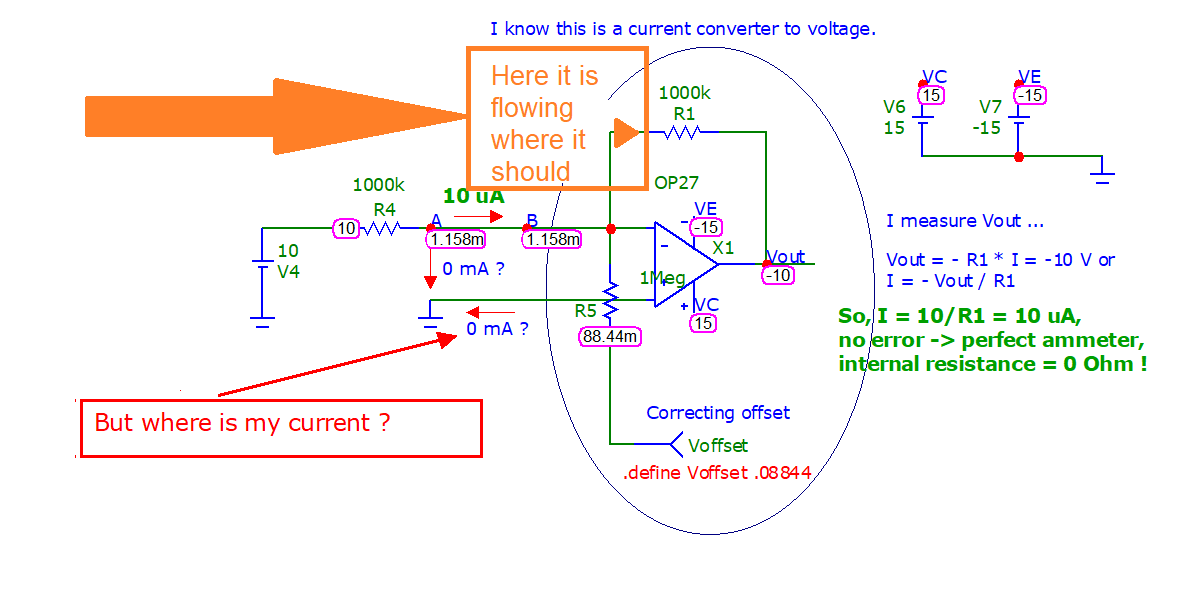That's basically how a transimpedance amplifier works; the output keeps the inverting node at the same voltage as the non-inverting node. The output takes that current (or drives that current if you prefer). The input impedance of the OP27 is a gazillion ohms. However, the OP27 does have input bias currents of circa 100 nA and these might pose a significant error if it's important.

